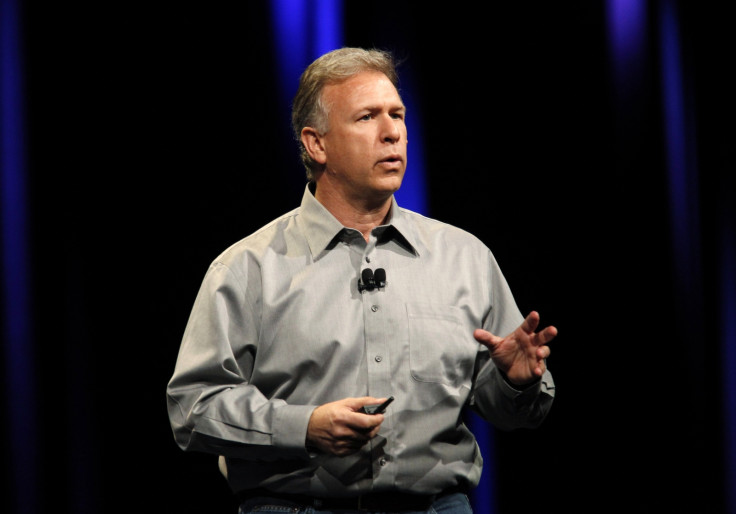Apple marketing VP Phil Schiller defends 16GB iPhone storage and battery life

Apple executive Phil Schiller believes a lack of storage on the cheapest iPhones is not a problem, as users can keep their files online instead.
The marketing senior vice president was responding to criticism that Apple still sells a 16GB iPhone, the same storage capacity as the entry-level iPhone 4s from 2011. As game and application sizes grow and flash storage gets cheaper, it is becoming harder for Apple to justify such little space – especially when the top-level iPhone 6 has 128GB.
Speaking to John Gruber during a live episode of The Talk Show podcast, filmed at Apple's Worldwide Developer Conference (WWDC), Schiller said: "The belief is more and more as we use iCloud services for documents and our photos and videos and music, that perhaps the most price-conscious customers are able to live in an environment where they don't need gobs of local storage, because these services are lightening fast."
Schiller, reports The Verge, said the money saved by not installing more storage goes towards improving other features, like the camera, but his argument does not hold water for everyone. Price-conscious customers opting for the 16GB iPhone 6 – £80 ($124) cheaper than the 64GB model and £160 less than the 128GB option – are unlikely to have a huge monthly data allowance to access content stored on iCloud when they are away from Wi-Fi access, such as during their commute.
Even if they had a large amount of monthly data (or spent the majority of their time connected to Wi-Fi), these customers would often be unable to install large games or applications without first deleting others to make space. And ignoring the 16GB iPhone 6 for a moment, do not forget that Apple still sells an 8GB iPhone 5c that has the same storage as the iPhone launched with in 2007 (a 4GB model was also briefly available back then). Apple also applies a monthly charge to users who want more than 5GB of iCloud storage.
Worse still, some users found it difficult to upgrade to iOS 8 last year as the 4.6GB of space required for downloading and installing the update was so large they had to delete many files to make room. Such problems pressured Apple into announcing that iOS 9 takes up 1.3GB.
Schiller's comments drew criticism from users of the MacRumors forums, who accused Apple of only caring about its profit margins. One user said relying on the mobile networks to access their files is "not good enough".
'We need to take risks'
Schiller was also quizzed about battery life and whether iPhone thinness and design is more important than all-day battery life. He said the thinness of the iPhone is the result of a trade-off between design, battery life, cost and other factors. "If you want a product that's thicker with a bigger battery it's also heavier, more costly, takes longer to charge...we model every thickness, every size, every weight and try to figure out what the trade-offs are. I think we've made great choices there."
Finally, Gruber brought up the new MacBook, which is very thin and light but has limited performance and just a single USB-C port, is used for charging and connecting to every wired accessory. Schiller argued that Apple had to be brave with the new laptop and take risks.
"Be careful what you ask for. If all we do is an incremental, slight change, where's the excitement? We need to take risks...that's the Apple I want – I want an Apple that's bold and taking risks and being aggressive."
© Copyright IBTimes 2025. All rights reserved.






















